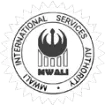Demystifying the Fundamentals: The Interbank Market
The forex market operates primarily through an interbank market, a decentralized network of banks and financial institutions around the world. These institutions trade currencies with each other electronically, setting the benchmark exchange rates for various currency pairs.
Important Note: Retail forex traders typically do not access the interbank market directly. Instead, they trade through forex brokers who act as intermediaries, providing access to the market and facilitating transactions.
The Symphony of Participants: Key Players in the Forex Market
Understanding the roles of various market participants is crucial:
- Commercial Banks: Commercial banks play a vital role in facilitating international trade and financing. They buy and sell foreign currencies to businesses engaged in international transactions.
- Central Banks: Central banks, like the Federal Reserve in the US or the European Central Bank (ECB), influence currency exchange rates by setting monetary policy, managing interest rates, and intervening in the forex market when necessary.
- Investment Banks: Investment banks are major players in the forex market, facilitating currency transactions for institutional investors and managing large portfolios of foreign currencies.
- Hedge Funds and Speculators: Hedge funds and speculators participate in the forex market to profit from fluctuations in exchange rates, taking calculated risks based on market analysis.
- Retail Traders: Retail traders, like yourself (potentially!), trade currencies in smaller volumes through forex brokers, aiming to capitalize on movements in exchange rates.
The Trading Engine: Orders, Leverage, and Execution
Forex trading involves placing orders to buy or sell specific currency pairs at desired prices. Here are some key aspects to understand:
- Order Types: Different order types are available, including market orders (immediate execution at the best available price) and limit orders (execution only when the price reaches a specified level).
- Leverage: Leverage is a double-edged sword. It allows you to control a larger position in the market with a smaller amount of capital (margin). While leverage can magnify potential profits, it can also amplify losses if the market moves against you.
- Order Execution: When you place an order through a forex broker, they act as an intermediary, connecting you with other market participants for order execution. This can happen electronically through the interbank market or other venues depending on the broker and specific currency pair.
The Moving Landscape: Factors Influencing Exchange Rates
Several factors can influence currency exchange rates:
- Interest Rates: Differences in interest rates between countries can attract or deter investment flows, influencing exchange rates. Higher interest rates tend to strengthen a currency as it becomes more attractive for investment.
- Inflation: Inflation, the rate of price increase in an economy, can weaken a currency's purchasing power. Currencies from countries with lower inflation rates tend to strengthen relative to those with higher inflation.
- Economic Data: Economic data releases, such as GDP growth, employment figures, and trade balance statistics, can impact investor sentiment and influence exchange rates.
- Political Events: Political uncertainty, wars, and geopolitical tensions can affect investor confidence and currency valuations.
- Supply and Demand: Ultimately, exchange rates are determined by the fundamental forces of supply and demand. Increased demand for a particular currency will lead to its appreciation, and vice versa.
Understanding the Marketplace: Trading Platforms and Execution Venues
Forex trading is facilitated through various platforms and execution venues:
- Forex Brokers: Forex brokers provide retail traders with access to the forex market and offer trading platforms for order placement and account management.
- Electronic Communication Networks (ECNs): ECNs are electronic platforms that connect buyers and sellers anonymously, facilitating efficient order matching.
- Dealing Desks: Some brokers utilize dealing desks, where traders interact directly with the broker's market makers for order execution.
- Deciding on a Platform: The specific platform and execution venue offered by a forex broker will influence your trading experience. Consider factors like platform features, order types available, execution speed, spreads, and commissions before choosing a broker.
Beyond the Spot Market: Exploring Different Trade Types
The forex market encompasses various transaction types:
- Spot Market: The spot market is the most common form of forex trading, where currencies are bought and sold for immediate delivery (typically two business days after the trade date).
- Forwards and Futures: Forwards and futures contracts are agreements to buy or sell a specific currency pair at a predetermined price on a future date. These contracts are used for hedging against potential currency fluctuations.
- Swaps: Swaps are customized agreements between two parties to exchange cash flows in different currencies over a specific period. They can be used for various purposes, such as hedging interest rate risk or speculating on exchange rate movements.
A Glimpse into the Future: The Evolving Landscape of Forex Market Mechanics
The forex market is constantly evolving, and its mechanics might adapt along with it:
- Technological Advancements: Technological advancements like automated trading platforms and artificial intelligence (AI) might play a more prominent role in order execution and algorithmic trading strategies.
- Regulatory Landscape: Regulatory changes might influence how forex products are offered and how broker interactions with clients are structured.
- Emerging Markets: The rise of new economic powers might lead to increased trading activity in currencies of those regions, potentially altering the dynamics of the interbank market.
Conclusion
Understanding forex market mechanics empowers you to navigate this dynamic and exciting financial landscape. By grasping the roles of key players, order types, factors influencing exchange rates, and trading platforms, you can develop a solid foundation for informed trading decisions. Remember, forex trading involves inherent risks, and responsible risk management practices are crucial. Consider consulting with a financial advisor before venturing into the world of currency exchange.







